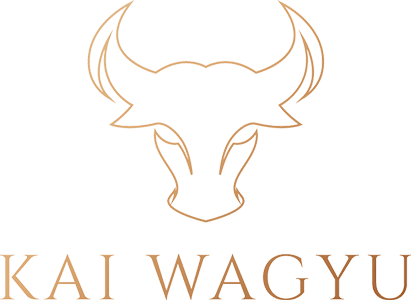Cast Iron vs Non-Stick Skillet for Wagyu Cooking

Wagyu beef is a prized delicacy renowned for its exquisite flavor and texture. When it comes to cooking this premium meat cast iron pans and non-stick skillets are our most reliable choices. In this blog, we’ll explore the key differences between these two types of cookware and how they impact the cooking process for Wagyu.
Cast Iron Pans
Cast iron pans are a popular choice for cooking Wagyu beef. This is due due to their ability to retain heat evenly and provide a great sear. Here are some of the key benefits of using a cast iron pan for cooking Wagyu:
- Superior heat retention. Cast iron is known for its excellent heat retention capabilities, which means that the pan will stay hot even when the meat is added. This ensures a consistent cooking temperature throughout the cooking process.
- Excellent searing capabilities: Cast iron pans are perfect for searing Wagyu beef, which requires a high heat setting to create a caramelized crust while keeping the inside of the meat tender and juicy.
- Naturally non-stick: Over time, the seasoning on a cast iron pan creates a natural non-stick surface that makes it easier to cook Wagyu beef without the need for added oils or fats.
However, there are also some downsides to using a cast iron pan for cooking Wagyu. One of the most significant drawbacks is the need for proper seasoning and maintenance to keep the pan in good condition. Cast iron pans are also quite heavy, which can make them difficult to handle, especially for those with limited strength or mobility.
Non-Stick Skillets
Non-stick skillets are another popular choice for cooking Wagyu beef due to their ease of use and low maintenance requirements. Here are some of the key benefits of using a non-stick skillet for cooking Wagyu:
- Easy to clean. Non-stick skillets are typically easier to clean than cast iron pans since food particles are less likely to stick to the surface. This makes them an ideal choice for busy cooks who want to spend less time cleaning up after meals.
- Lightweight and easy to handle. Non-stick skillets are much lighter than cast iron pans. This allows them to be easier to handle and maneuver, even for those with limited strength or mobility.
- No seasoning required. Unlike cast iron pans, non-stick skillets don’t require any seasoning or special maintenance. Which makes them a more convenient option for cooks who want to get started right away.
However, non-stick skillets also have some downsides when it comes to cooking Wagyu. One of the most significant drawbacks is that they don’t provide the same level of searing capabilities as cast iron pans. This means that the meat may not get the same caramelized crust that is so desirable when cooking Wagyu.
Conclusion
In conclusion, both cast iron pans and non-stick skillets have their pros and cons when it comes to cooking Wagyu beef. Cast iron pans provide excellent heat retention and searing capabilities, but require more maintenance and can be quite heavy. Non-stick skillets are easy to clean and handle, but may not provide the same level of searing as cast iron pans.
Ultimately, the choice between these two types of cookware will depend on your personal preferences and cooking style. If you’re a fan of seared, caramelized crusts and don’t mind a little extra maintenance, a cast iron pan may be the way to go. If you want something that’s easy to use and clean, a non-stick skillet may be a better option. Whatever you choose, be sure to enjoy the delicious flavor and texture of Wagyu beef!
